Meet our next creator, Liana Finck:
Liana Finck
Age: 37
Child: Raymie, 1 1/2
Vocation: Cartoonist
Location: Windsor Terrace, Brooklyn
Links: Liana’s Newsletter, website
First off, you may have noticed that I’m publishing not quite as frequently right now. It’s a summer thing. I hope we all can be on our computers a little less for a little while. Perhaps we can have a glass of rosé with lunch, or we can read a book instead of email, or we can say yes instead of no when our kid asks us to play.
But I will still be sending you amazing interviews—like this one! My interviewee this week, Liana Finck, is a wildly successful cartoonist, who regularly appears in The New Yorker and has published three graphic novels and a memoir. She has two new books coming out next year—a children’s book called You Broke It that will be out in January and a book for adults called How to Baby, which is, as she describes it, diary-type drawings of pregnancy and the early days of parenthood. That one’s coming out in March. I’m extremely excited about both of them. Liana has an uncanny and very brave way of distilling the complex emotions of life (especially motherhood and wifehood of late) into simple, pithy, poignant moments.
One thing in particular that we discussed has stuck in my head, and that’s the concept of roles. In so many facets of our lives, we’re forced into roles, which are defined by other people and how we relate to them. Unless you’re someone who particularly likes acting, roles can be exhausting. And restricting.
I don’t think I’m alone in feeling thoroughly conditioned to try to please everyone around me and to be attune to everyone else’s feelings, often at the expense of my own. This conditioning only gets compounded with the mom role. (I’ve written before about my resentment of having the role—the American role—of mother hoisted upon me.) It’s this invisible insistence to be the type of mother that we’re supposed to be instead of figuring out our own unique way of parenting that drives women mad. Mad in both meanings of the word.
It reminds me of a moment at my wedding a decade ago. At one point, a relative of mine came up to me and said, haughtily, “Well, this is a side of you I’ve never seen before.” I laughed and forced myself not to analyze it because it was my wedding day, and I was determined not to hold other people’s feelings above mine. I was going to enjoy myself, damnit. But in hindsight, I think the person meant that they didn’t know I…dance? They didn’t know that I like to have fun? And that was somehow unsettling for their vision of who I was. I had put a crack in the image of the role I filled for that person.
It comes down to the obvious: we never know anyone completely. It’s offensive to them to think we do. And maybe the best we can do is try not to look at other people with boundaries around them. If someone’s not filling their role the way you think they should, or they’re blowing up the role completely, try just letting them be. Watch what they do. It might be something incredible. Because unless you’re getting paid for it, no one wants to be in a role. And if you see someone dancing, even if you’ve never seen it before or if, maybe, they’re not too good at it, perhaps the best thing you can do is to jump in and dance alongside them.
Now, Liana, in her own words…
On why her cartoons are so personal:
I’ve been autobiographical for the past 10 years or so, and I still don’t really know why I do that. But I like writing about what feels immediate and emotional, and fiction always feels a bit distant for me, and politics feels a bit big. I like writing about tiny details.
It made really early motherhood a lot easier for me because I was very active on Instagram at that point, and I had what felt like a huge community of both strangers and friends. The far reaches of my network are stronger than they would have been if I weren’t posting about my life all the time. I think people felt close to me and reached out. So I was in touch with all these other people who had babies exactly the age of my baby. And I had so much time to be writing to them because I wasn’t able to work much because I was taking care of my baby, but I also wasn’t actively chasing or wrestling my baby the way you would with a toddler. So there was a lot of community emailing.
It’s been harder to make questions about an older baby than a toddler. I’ve also felt like my community has migrated from emailing to people I hang out with on the playground.
On why a baby is better material than a toddler:
I’ve been making less autobiographical work about the kid. Early on, I was smugly like, I can make my art while I’m with my kid. I was able to draw little cartoons while I was caring for the baby when he was a baby. Now, I’m not able to draw at all, or text or email or be in touch with people not in my immediate vicinity, when I’m with my kid anymore.
Part of why it was harder to make cartoons about the older baby is that things were feeling more specific. With the tiny baby, it was a very life-or-death kind of feeling, like big love and big fear. And that felt general. And I didn’t feel like I was oversharing.
On cartoons as therapy:
But now, writing about resentment with my partner, I think it’s general. But I know he doesn’t think it’s general, and it really hurts him. Stuff like that isn’t coming up with the kid yet, probably because he can’t read. But I know it will.
I was trying really hard to be sensitive, partly for survival. I didn’t want to risk my family for cartoons. But I also think cartoons are my best tool for explaining things to myself. I’m really going hard for household labor equality. I honestly think it’s made my marriage better because I need clarity in order to make changes. Ideally, we could talk about this stuff together, but it’s so loaded that we really can’t as much as I would like to. So I’m talking in my cartoons about it, and I publish some of them, and I don’t publish some of them.
But I share them with myself, and then I know what to ask him for. He does better with, “Hey, can you do this?” than, “Here’s what’s going on in my soul, and here’s why it hurts, and here’s what maybe you’re going through, and let’s talk about it.” He does way better with just, like, “I need you to take the kid home from daycare three days a week.”
On a new project about being a wife:
It’s called She Devil, and it’s in the format of a newspaper comic strip with three or four panels and a punchline at the end, like Kathy or Garfield or something. I am kind of thinking of the husband and wife as enemies. She’s a devil, and he’s an angel, partly because she has intent of evil because she’s more self-aware than he is, and he is oblivious and can claim to be totally sweet. I think women are conditioned to be selfless, and by not being completely selfless, she is very guilty, and she feels like the devil. He doesn’t expect selflessness from himself, so he’s not feeling evil. Even doing a little bit makes him feel like an angel.
I’m just starting to noodle around with it. By drawing out the total aggression at the heart of some of the little household squabbles, I’m exorcizing them from myself. Like, they aren’t everything, but they feel like everything if you don’t put them into words, and I’m putting them into words and putting them in their place by doing that.
On how the freelance life makes you the default parent:
Now when I’m drawing, it’s on my work time. It’s when I’m away from the kid. I’m trying to take the model of someone with a nine to five. I’m trying to separate my days into two parts: family and work. Which is really hard as a freelancer.
I’m in publishing, and I feel like I work the way a journalist would work, even if they don’t have an office. What makes it hard is that I feel like the world kind of conspires to expect me to be the default parent because I don’t have a boss I’m reporting to. My husband has a day job, so for a long time, I was doing all of the household and childcare stuff and dog stuff during the week, even though I also ostensibly have a job. But I’ve been pushing back.
In some ways, freelancers are so lucky that we don’t have to lose our job because we need to go get our kid when they’re sick. There is more flexibility, but it eats away at our career in this way that we don’t talk about.
On the problem of roles:
[The above is] an example of the kind of cartoon that I wouldn’t have posted in the past year, but something has changed, and I realized I need to be posting these thoughts in order to have them and to act on them, even if they might hurt people.
A lot of big structures, such as an extended family or a community, like a religious community or a daycare community, are kind of designed to give everyone a role and not to see people as individuals. And that works better for some people than for others. For example, I think the role of mom and wife is hard to fill while also being an individual human being. The more time you spend with big groups of your parents and aunts and uncles and cousins, the more you’ll be filling this specific role. And I realized I’ve been spending every single weekend with both my and my husband’s family, and I love them a lot, but it’s also not a good balance because I’ve been enacting the role of wife and mother much more than I’ve been enacting the role of a person, which is what I enact with my friends.
On the value of our kids’ time:
Before, when people asked me to do literary events, even if they’re paying me a little bit, I’d be like, great, I gained that amount of money. But now, I’m always balancing everything against whether they are paying me more than I’m paying the babysitter. No one ever, ever offers to cover a babysitter if they want my time. And I think that’s wrong. I think people should cover the babysitter. I don’t think a kid is just a luxury item that I decided to spring for. If someone wants my time, they’re taking my kid’s time as well. And they need to be thinking about that.
On having it all:
I think it’s possible to have a family and a career as a woman, but we need things to change. We need more support.
I love having the kid, and it really fulfills me to have him and the family too. But I’m feeling absolutely crushed by the lack of support in systems where everything just crumbles if he gets a slight fever.
Thank you for sharing, Liana!
*Interview has been edited for length and clarity.





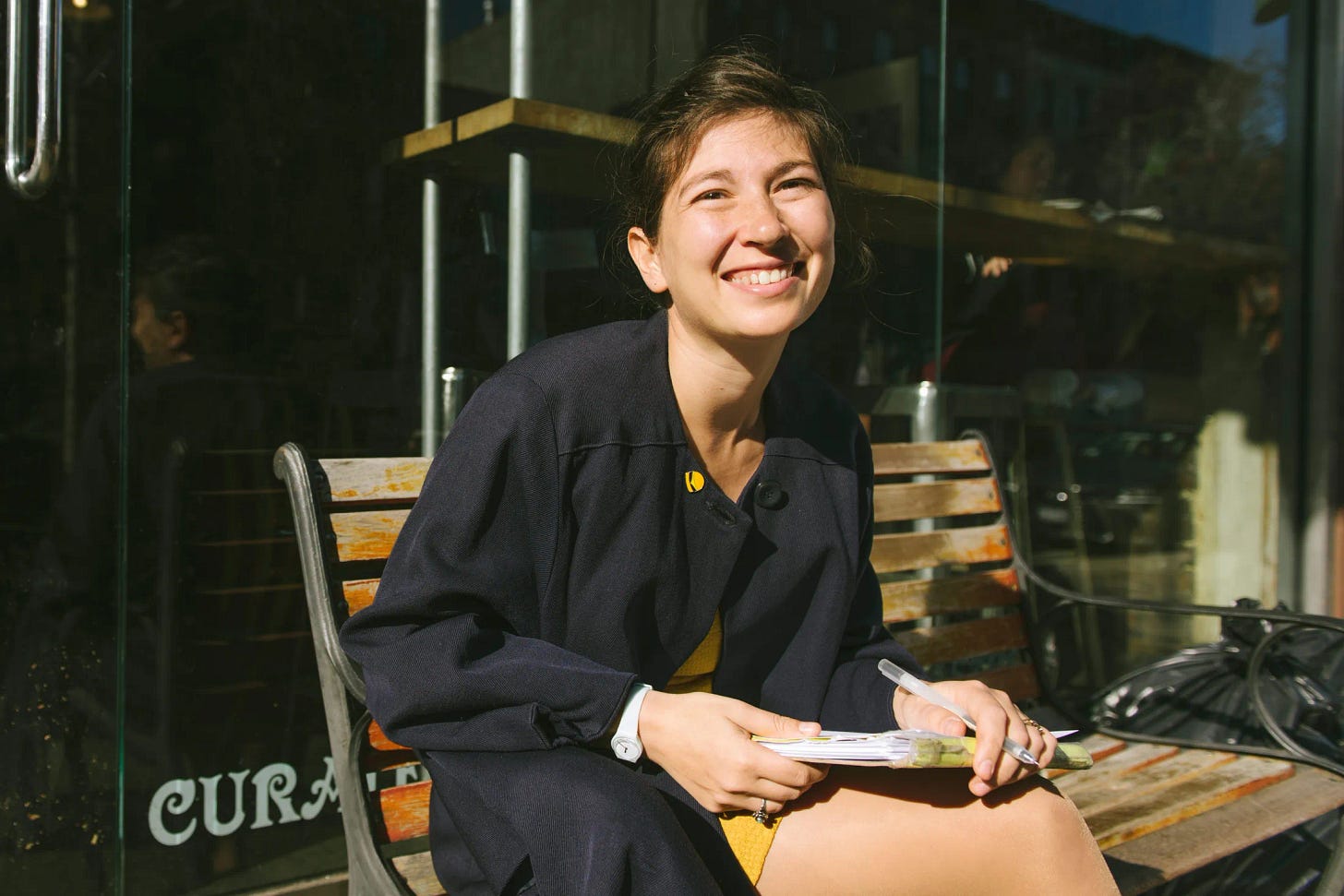
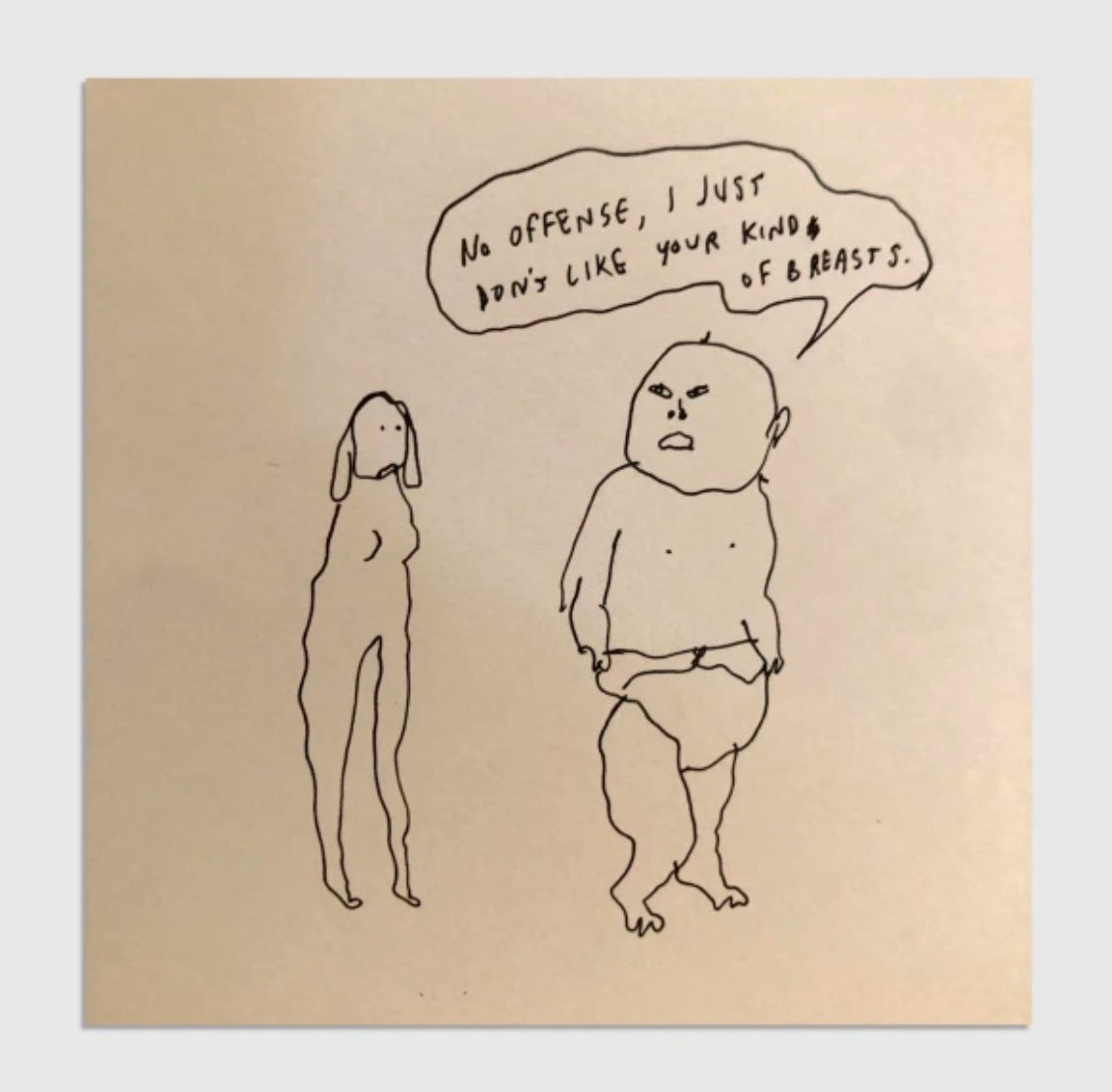
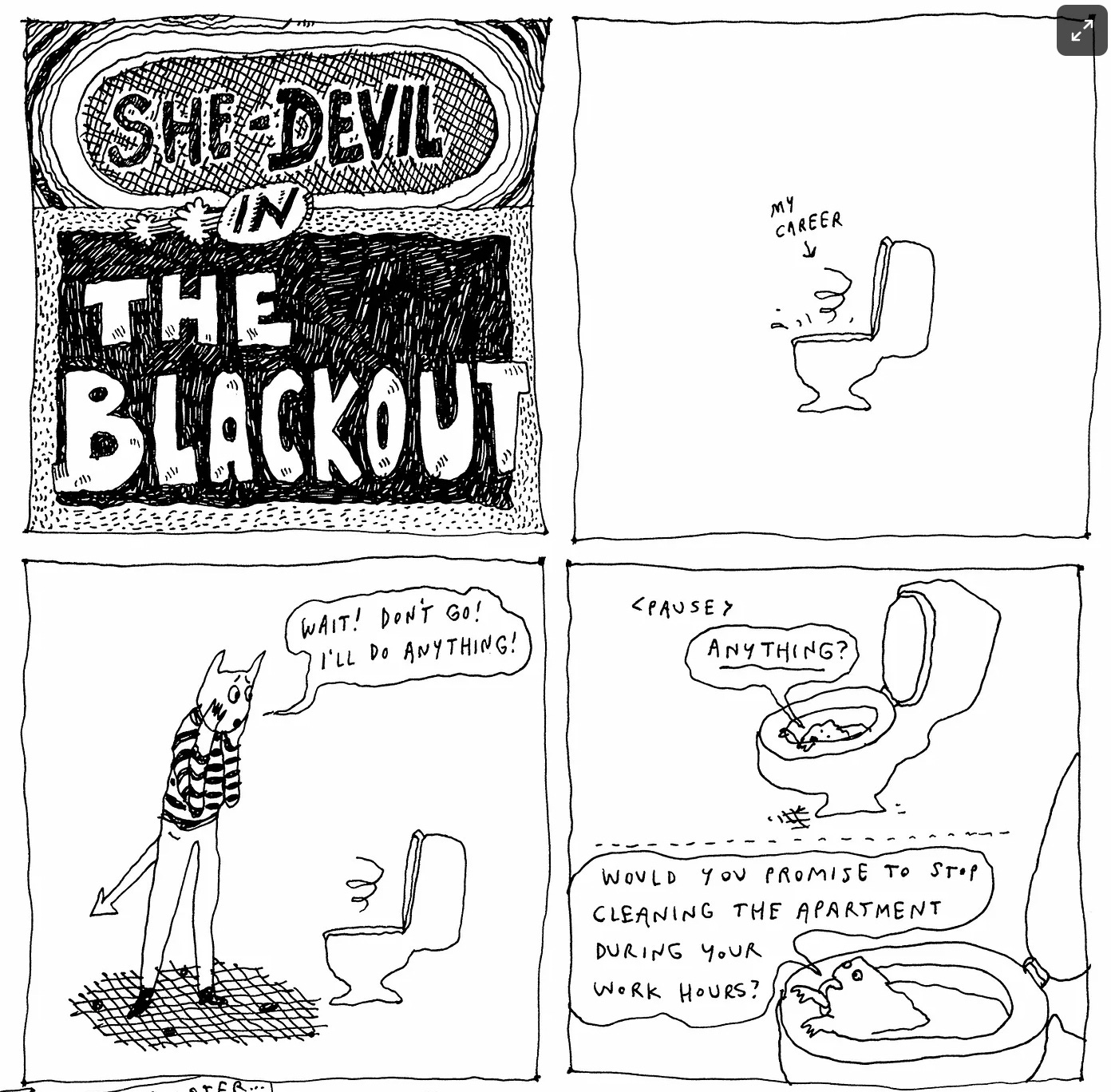
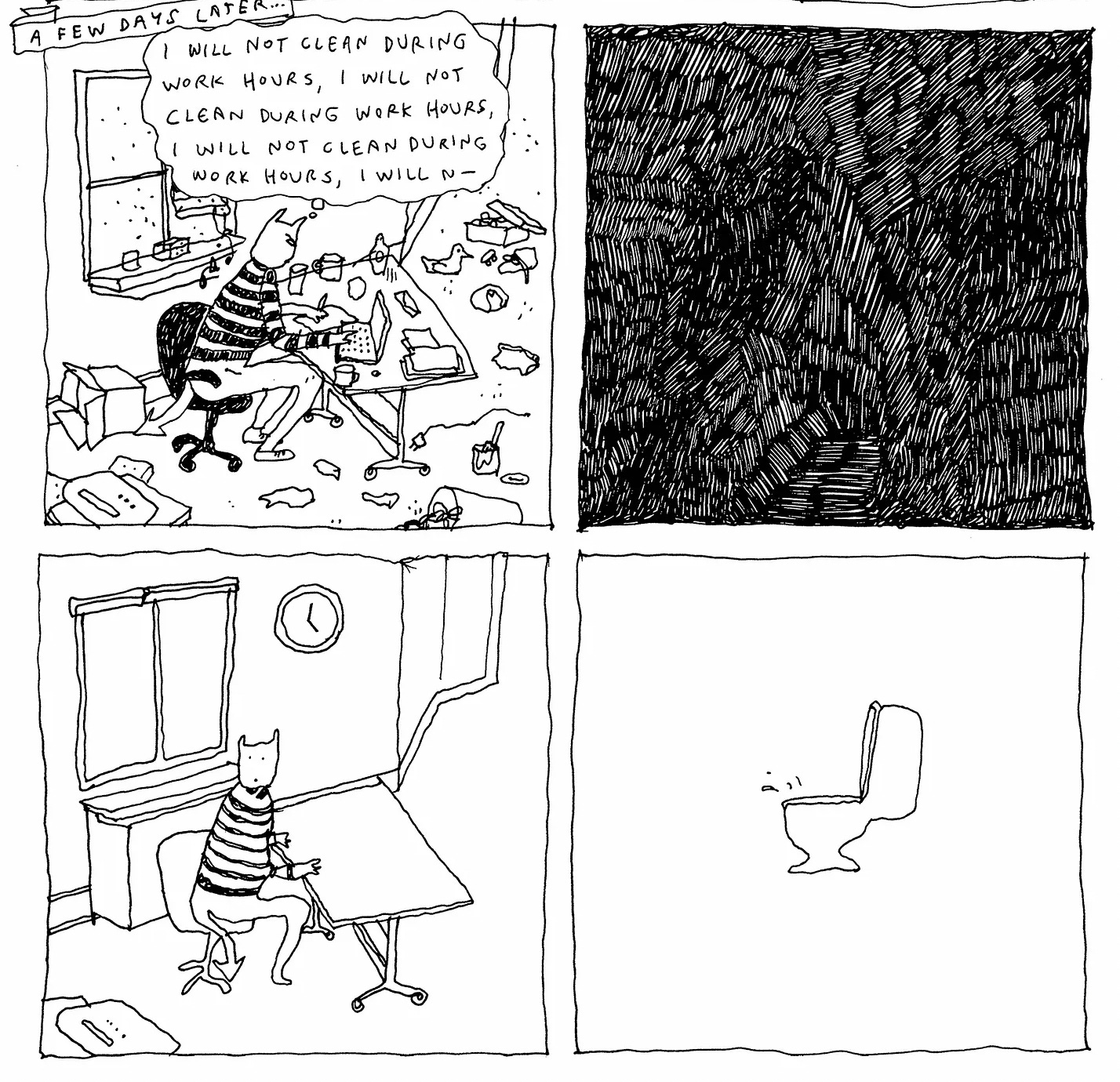
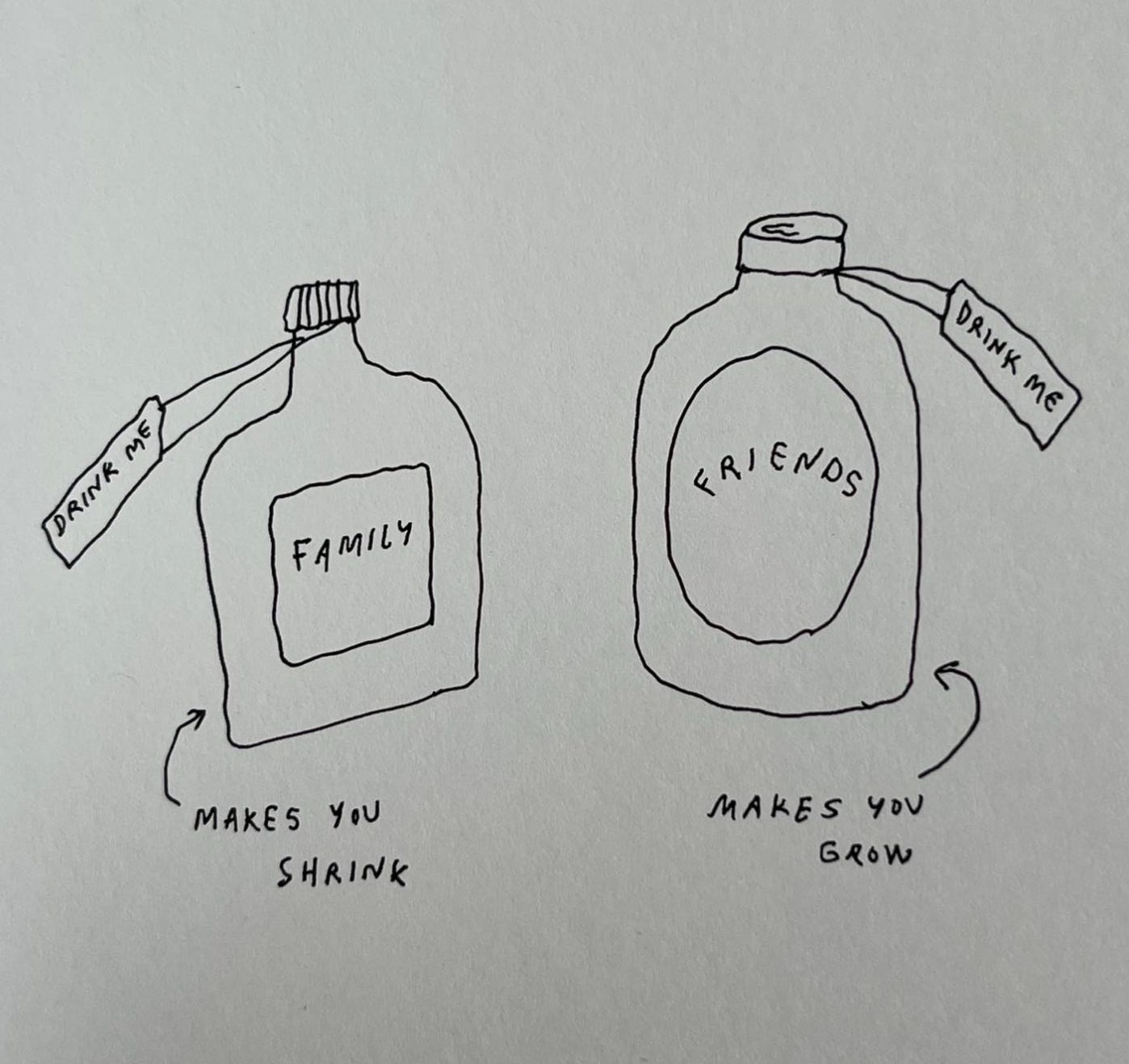
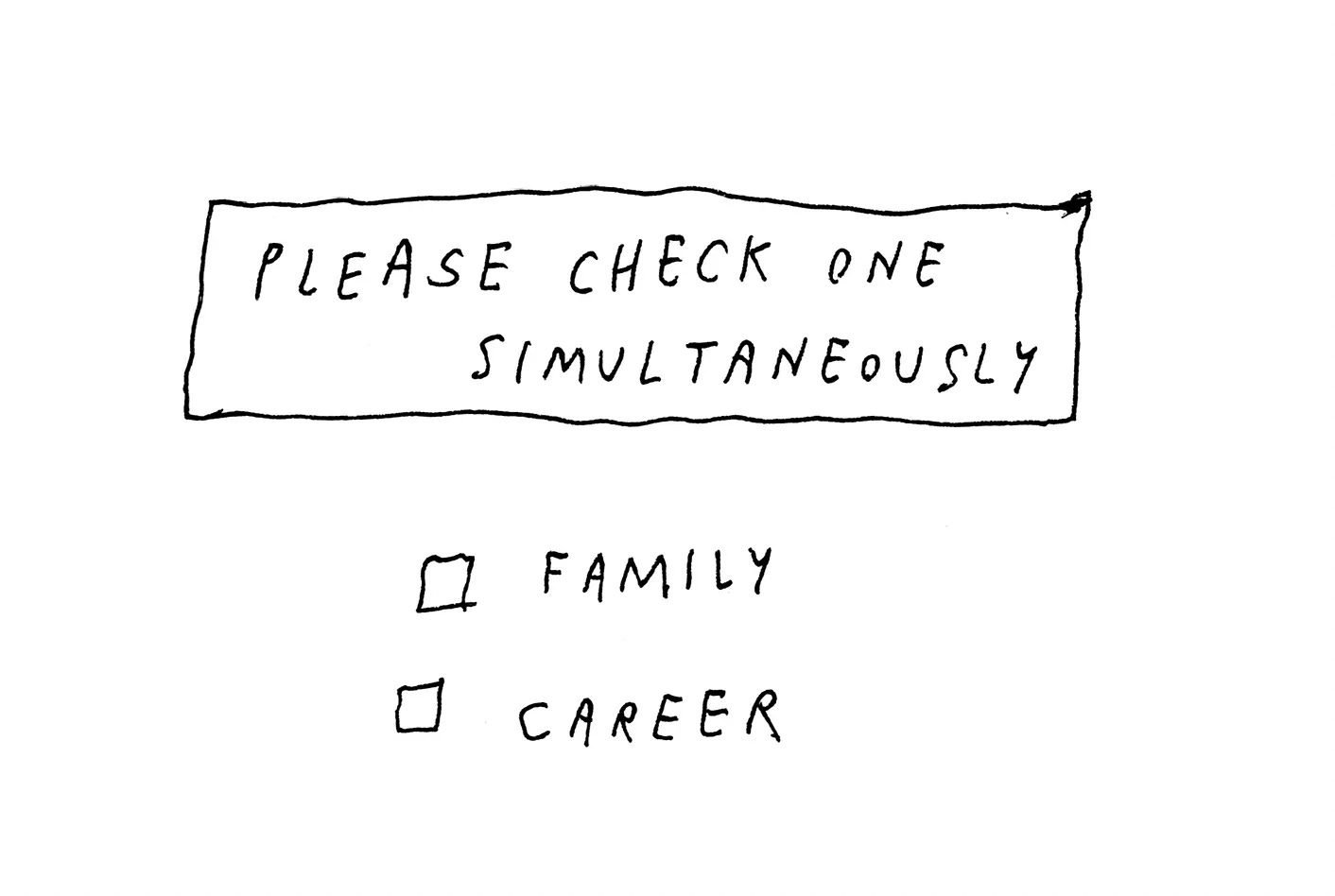
From our kid coming down with a fever, to every single day they have off from school for teacher-work days, to summer vacation, to any hiccup in life, it all falls on us. It is nearly impossible to continue being yourself, working on your own projects or commitments or life, when there is zero support other than being lucky enough to have a local, non-working grandmother that can come to your rescue every few weeks. These are important things to say out loud, and she is saying that our loud in her cartoons. How wonderful! We need more bitter visual honesty.
Loved this. Such great insights and perspective